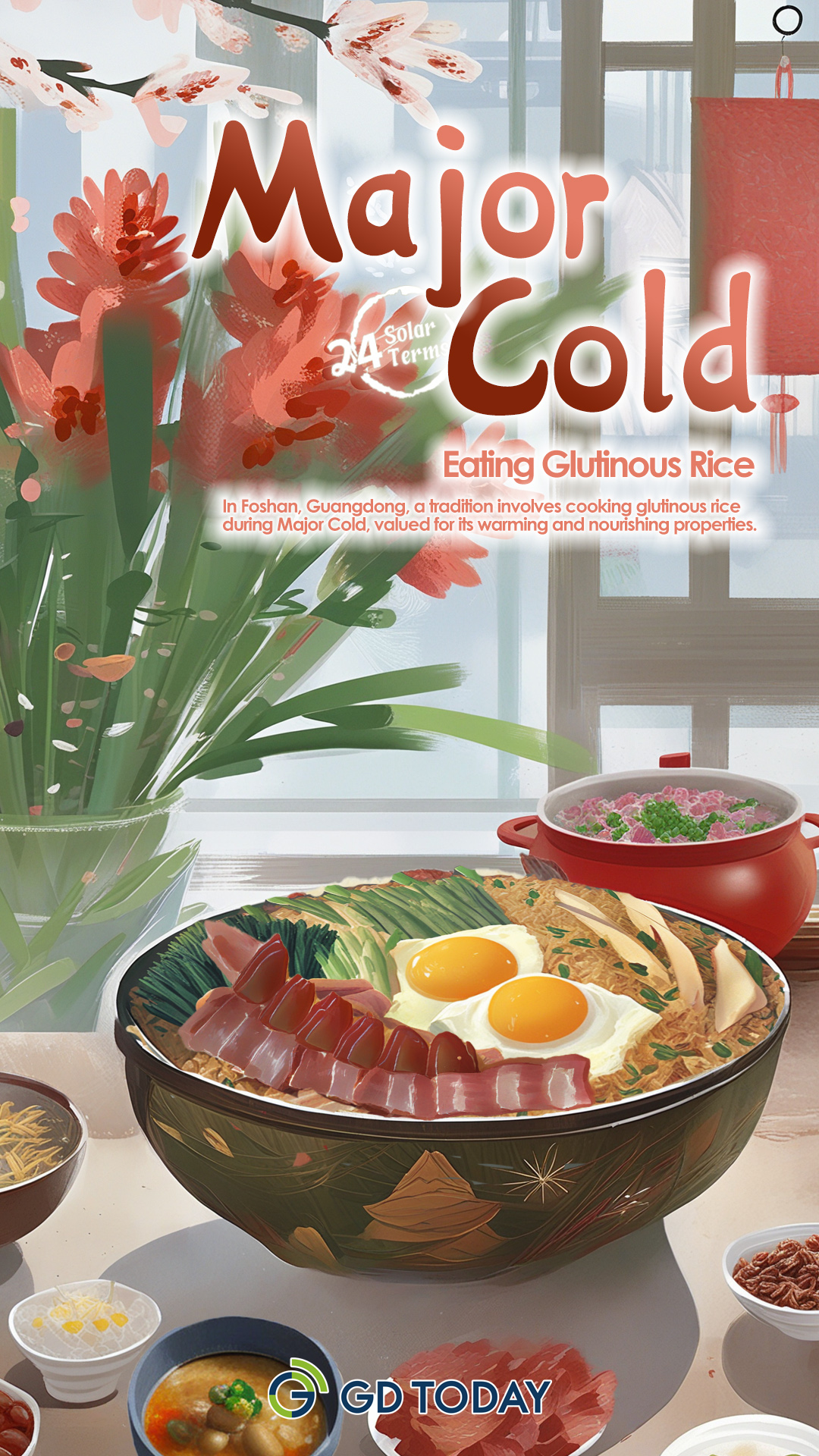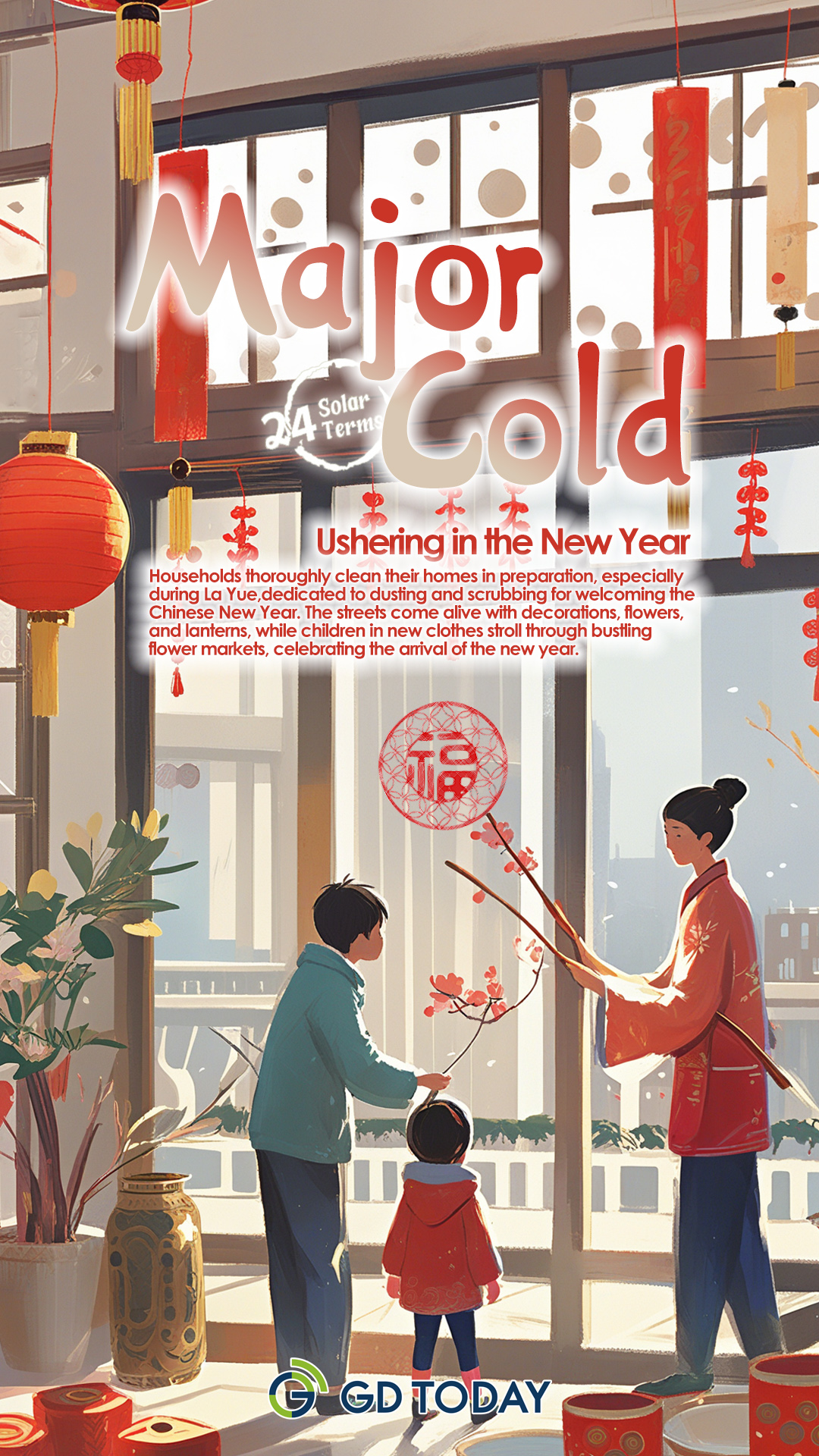Major Cold, the final solar term of the 24 solar terms in the traditional Chinese lunar calendar, signifies when winter's grip loosens as spring approaches. Unlike the harsh winter months, though cold, it carries a subtle hint of warmth heralding the changing seasons.
During this period, Chinese people embark on a bustling spree of preparations for their most significant festival—the Spring Festival. Households are busy ridding their homes of the old, adorning them with the new, preserving festive delicacies, and preparing for the upcoming celebrations.

Eating Glutinous Rice
As Major Cold converges with the solar term marking the Beginning of Spring, households adjust their diets harmoniously with the seasonal shift. Foods for nourishing the body are gradually reduced to align with the sprouting of all things in spring. In Foshan, Guangdong Province, there is a cherished folk custom of cooking glutinous rice in clay pots during Major Cold. The glutinous rice, sweet in taste and warm in nature, is consumed for its cold-resisting and nourishing properties, providing a comforting warmth during winter's tail.

Ushering in the New Year
Despite the cold, Major Cold cannot quell the Chinese people's enthusiasm for welcoming the new year and anticipating spring. Households are thoroughly cleaned, ridding their homes of dust and preparing for the new year with a tidy appearance. The 12th lunar month, known as La Yue in Chinese, is inherently associated with dusting and cleaning, with every household bustling with activity—dusting off furniture, scrubbing windows and doors, and discarding trash.
The streets are abuzz with life, adorned with flowers, new year paintings, and lanterns. Flower markets bloom with a riot of colours, with spring flowers and phalaenopsis orchids among the many festive blooms. Clad in their new clothes, children stroll through the flower streets with their families, celebrating the new year.
Author | Feng Huiting
Editor | Wei Shen, Huang Qini, James, Shen He
















